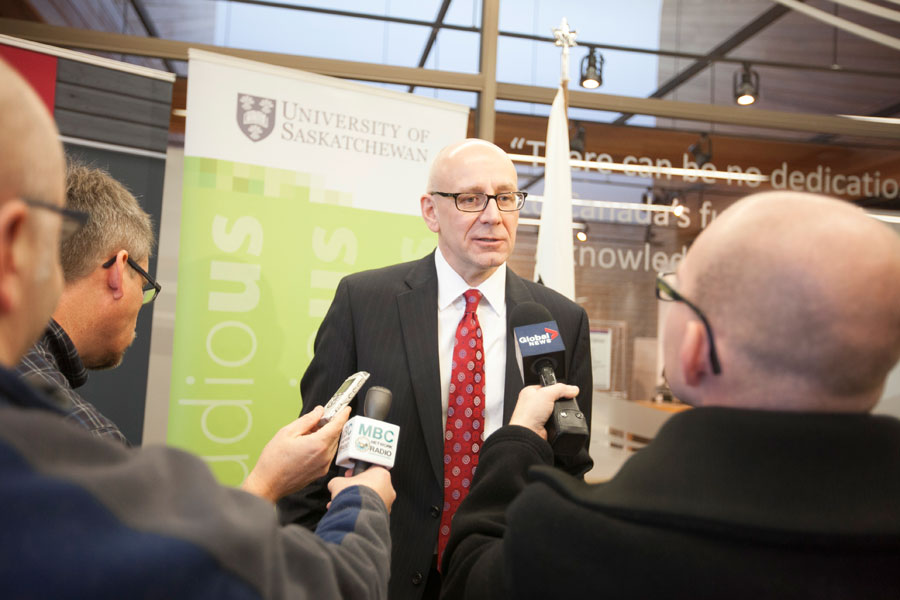Co-operative business development project funded by FCL
The University of Saskatchewan will receive $1 million over two years from Federated Co-operatives Limited (FCL) for an initiative in co-operative business development in rural and Aboriginal communities in Canada.
By University Communications The project will be led by the university's Centre for the Study of Co-operatives in partnership with the Johnson-Shoyama Graduate School of Public Policy (JSGS), the International Centre for Northern Governance and Development, the Edwards School of Business (ESB) and the Plunkett Foundation in the UK.
The project will be led by the university's Centre for the Study of Co-operatives in partnership with the Johnson-Shoyama Graduate School of Public Policy (JSGS), the International Centre for Northern Governance and Development, the Edwards School of Business (ESB) and the Plunkett Foundation in the UK.
Working with rural and Aboriginal communities, the partners will explore ways to expand the co-operative business model in communities where co-ops have not previously been present.
"This partnership provides a unique opportunity to help rural and Aboriginal communities determine whether the co-op model can be applied as a practical solution to needs identified by the communities themselves," said FCL's CEO Scott Banda at the funding announcement Nov. 13. "Working together, we will inspire innovation and economic development, and create lasting changes, not just quick fixes, based on co-operative principles such as co-operation, participation, and concern for the community."
Each of the key partners brings specific expertise to the project, which will focus on understanding the challenges and opportunities in rural and Aboriginal communities, designing, implementing and evaluating co-operative development programs, and creating co-operative businesses.
The project will incorporate experiential learning opportunities for U of S students, integrate research and teaching tools into the JSGS and ESB curriculums, and develop case studies in rural and Aboriginal social and economic development. This knowledge will be used to better inform future business leaders and policy makers about the efficacy of the co-operative model.
"The university supports the involvement of faculty and students in creating solutions with the individuals in rural and Aboriginal communities, rather than creating solutions for them," said U of S Provost and Vice-President Academic Brett Fairbairn.

